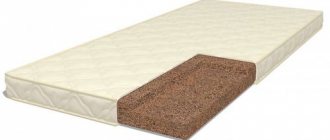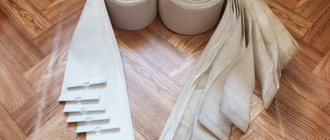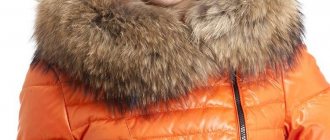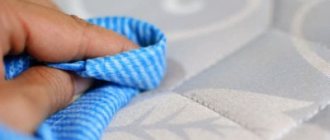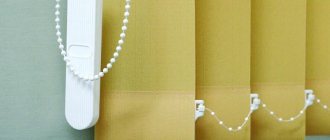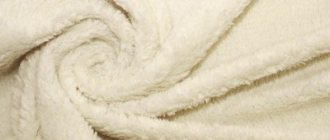Recently, winter jackets with artificial or natural insulation – parkas – have come into fashion. They can often be seen in cold weather in adults and the younger generation. To make them look good, you need to take care of them, taking into account the nuances. Before washing your parka, you should read the washing instructions. Considering the material of manufacture, the products can be washed in a machine or by hand.
Proper preparation for washing parkas in a washing machine
If you wash the product in a machine, you must perform the following preparatory procedures:
- Empty your pockets from various small items.
- Unfasten the parts that are attached to zippers, buttons and other fasteners. These usually include a collar, some pockets, a hood, and a warm lining.
- Close all remaining zippers and fasten buttons. Otherwise, they may damage the fabric during washing.
- Turn the product inside out.
- If the housewife has a thin bag for washing woolen and delicate fabrics, put the parka in it. This will serve as another guarantee that it will not deteriorate due to mechanical stress.
- Place the jacket in the washing drum. Do not put together with other clothes to prevent staining from them.
Important! The temperature should not exceed 40 degrees. Otherwise, the fabric may become deformed.
What to do with the edge (artificial, natural)
Very often the parka has details with fur, for example, a hood, collar or cuffs. The best option is to unfasten them before washing and clean them separately. But if this is not possible, then the fur must be tightly wrapped in several layers of plastic film or in a bag and secured with tape or rope.
The fur must not be allowed to get wet, otherwise not only will its appearance deteriorate, but its protective properties will also be lost. It’s okay if a little water gets on your collar, the main thing is to avoid getting completely wet.
To clean the edge, use a mixture of starch and cold water. The liquid pulp is evenly distributed over the pile and left until completely dry. Then the remaining solution is carefully cleaned off with a soft brush. The method is suitable for artificial and natural fur.
Some housewives risk washing items with faux fur without covering it. It is believed that if the pile is thoroughly combed after drying, it will return to its original appearance.
Rules for washing parkas made of cotton, polyamide and membrane fabric
How to wash a parka correctly is dictated by the material of the fabric. When washing cotton or polyamide items, you must set the mode indicator to delicate treatment. Set the temperature to 40 degrees, turn off the drying. When cleaning a white parka, you can add bleach.
Before washing outerwear made of membrane fabric, the temperature in the machine should be set to 30 degrees. As a detergent, buy a special preparation for cleaning membrane fabrics. You need to set the mode indicator to delicate washing, turn off spinning and drying. It is allowed to wash the membrane material in a basin with your hands in cool water.
Attention! Fabric softeners (rinse aids) are not used. They negatively affect the ability of the parka to “breathe”.
How can I clean my jacket?
Ammonia, hydrogen peroxide - they need to be mixed in equal proportions, moisten a cotton swab (disk, piece of clean cloth) with the solution and wipe the stained areas or the entire surface of the jacket. After this, the remaining solution must be removed with a damp cloth or a rag soaked in water.
Interesting materials:
How to vacuum properly? How to properly comb the fur on the hood? How to write the amount in words correctly? How to position a baby crib correctly? How to position the oven correctly in the kitchen? How to properly place a bed in a children's room? How to properly place lamps on a suspended ceiling? How to properly place a TV in the kitchen? How to properly place a TV in the living room? How to position the terrace correctly?
How to wash a parka with padding polyester
There are rules on how to wash a winter parka using padding polyester. These jackets are machine washable. The washing method should be set to “Delicate” or “Synthetic”. The product cannot be wrung out or dried in a machine. You can use regular washing machine powder for cleaning, for colored wardrobe items. After completing the procedure, the jacket should be wrung out a little by hand without twisting and hung on hangers over a large basin to dry.
Preparatory work
Preparing to wash a parka consists of certain manipulations that cannot be neglected.
- All detachable elements are removed from a winter or spring jacket - the hood, fur, lining, pockets and collar.
- The jacket is fastened with a zipper and all buttons, and a cord must be tied at the bottom. After this, the item is turned inside out. Due to this, during washing, the decorative parts will not scratch the washing machine drum and will not come off.
- Then the parka is rolled up and placed in a special bag for washing. If you don’t have such a device at hand, then a regular pillowcase will do. This greatly reduces the risk of deformation of the fabric from which the jacket is made.
You can wash a winter or demi-season parka jacket either in an automatic machine or by hand. The choice of washing method depends only on the fabrics that make up the item. The filler, the fabric of the jacket and the presence of fur parts that cannot be detached play a big role.
Before you start washing, you need to carefully examine the inside of the jacket and find the label on it. On it, the manufacturer usually indicates recommendations for caring for the item.
How to wash a parka with fur
Before you wash a parka with a fur lining at home, you need to familiarize yourself with the nuances of caring for fur clothing. Real fur is difficult to clean at home. If you wash it in water, it will disfigure the product. If there is a liner made from animal skin, it should be removed from the jacket and taken to dry cleaning. If this is not possible, you can clean the fur using folk remedies, without water.
Most often, natural linings are made from sheepskin. Here are some popular methods on how to clean it:
- Grease stains can be cleaned with dishwashing detergent. They should be applied to the stain, and after a few minutes, rinse with water.
- Starch, soda or semolina are used as a bleaching agent. The product should be applied to the fur, lightly rubbed, and then the dirt should be removed with a vacuum cleaner.
- A good effect is achieved by mixing the yolk with Vaseline. The fur needs to be treated with the mixture. Once dry, clean it with a clothes brush.
- Restoring the original color of the lining is achieved by using crushed walnuts. It must be placed in gauze and the lining lightly rubbed.
- A stain on the backing can be removed with a mixture of water and ammonia in a ratio of 1:2. Apply the solution to the stain and then wash it off with a damp sponge.
- Potato skins must be washed and chopped in a blender. Apply the mixture to the fur. It will absorb dust and dirt. After a quarter of an hour, clean off the product with a clothes brush or vacuum cleaner.
Faux fur is easy to clean at home. There are 2 options for cleaning fur. The first is to machine wash the fur lining. You need to set the mode indicator to “Delicates”. Turn off squeezing and machine drying. Use only liquid fur cleaning products.
We recommend:
How to wash jeans in a washing machine
The second option is to wash it in a basin by hand. The basin should be filled with slightly warm water, and the detergent should be stirred in it. Place the liner there and clean it with a hair brush, brushing it in the direction of the fibers. You need to squeeze the product lightly and very carefully. Some housewives prefer to wrap the fur lining in a towel to absorb excess moisture. Then it must be hung over a large basin on a hanger.
Information: to give the fur a new look, after finishing the process, comb it with a fine comb.
We meet the buyer and offer the product
For the script to work 120%, the seller must be polite and friendly, be able to adapt to the buyer, win him over and sincerely understand. What does the buyer want? On the one hand, he should not be intrusive, not “stand over the soul” when introducing the buyer to the store’s assortment, but, on the other hand, he should not be indifferent and distant.
We need to find a middle ground!
“Good afternoon” or “Hello!” and a welcoming smile when a customer enters the store.
Next, the seller must monitor what the buyer is looking at, what style, color and texture he pays attention to. As soon as the seller sees that the buyer is looking for help in choosing, he should come up and offer his help: In the dialogue, the seller must monitor the buyer’s reaction, how much he likes what he offers
In the dialogue, the seller must monitor the buyer’s reaction, how much he likes what he offers.
After selecting the models, we move on to fitting.
During fitting, the seller should be nearby to help the buyer if he needs it:
“Should I help you zip up the zipper?” “Is the size right for you?” “Should I bring something else?” “The fitting room is dark, there is good daylight in the hall. Go into the hall, there is a large mirror there, you will be able to fully appreciate the beauty of this model.” “Which dress did you choose? Or will you take several? “What are your doubts? This dress is easy to care for, the fabric does not roll up, the dress fits the figure, emphasizing all its advantages.”
In moments of doubt, it is important to paint a beautiful picture and evoke positive emotions. If the seller sees that this style does not quite suit the buyer, then you can offer an option of a similar color and style, but a different style
At this moment, it is important to present the new model beautifully so that the buyer wants to try it on.
“I would like to invite you to try on this wonderful dress. It is similar in color to the dress you have chosen, but different in style. A full, loose skirt will make your silhouette more harmonious and will also highlight the beauty of your legs, and the V-neck will add zest to your look.”
Proper drying of a winter parka
Drying is the final stage. As a rule, parkas are made from wrinkle-resistant fabrics and do not require ironing. Drying is carried out equally for all types of matter:
- After washing, you should not immediately remove the jacket from the machine drum; you must allow time for the water to drain.
- Then you should remove the product and turn it outside, except for the sleeves.
- Hang the parka on hangers over a bathtub or large basin.
- Remove excess water by running your hands over the fabric from top to bottom several times with some pressure.
- Turn out the sleeves.
- Leave the product hanging over the bathtub until the water stops dripping.
- Smooth and level the material with your hands.
- Place the hanger with the jacket on the balcony in the shade until the material dries completely.
Important! The parka should not be dried on a radiator or near heat sources. It can become deformed at high temperatures.
A winter jacket can be washed in a machine, if you take into account the material it is made of and know the rules for cleaning a particular fabric. Lining made from animal skins should be dry cleaned, and faux fur can be washed in a washing machine or by hand. The temperature of the water in the drum or basin when cleaning the parka should not be higher than 40 degrees. You should select the “Delicate” mode in the machine.
Rate this post
How to remove folds and creases with a steam generator?
Items made from polyester are much easier to iron using steam. Some models of irons and special steam generators have a vertical steam function.
Due to the fact that the product is exposed only to steam, the possibility of damaging the fabric is completely eliminated. This also applies to wrinkling, as well as the characteristic shiny marks from the soleplate of the iron.
The instructions in this case are very simple:
- you need to hang the item on hangers; by the way, many models of steam generators come complete with them along with a holder;
- select the steam mode for synthetic products so that the flow is not too powerful, as for cotton or linen;
- iron without touching the sole to the surface of the jacket, treating it only with steam;
- You need to start ironing from the inside, while the front part will also be processed, since steam passes freely through the layers of fabric and insulation;
- First of all, the back is steamed, then the front and at the very end - the sleeves, shoulders and collar.
The advantage of steaming is not only high-quality ironing, without the slightest harm to the item, but also in its effect on the insulation. Under steam, it returns to its original shape and is evenly distributed throughout the jacket with a simple shake.
If wet spots appear on the material, do not be alarmed - it is simple condensation. It will dry quickly without leaving any marks on things. To prevent this from happening again, you need to reduce the steam intensity.
Steam treatment of outerwear helps to destroy harmful microorganisms that appear over time in natural insulation materials, such as down and feathers.


